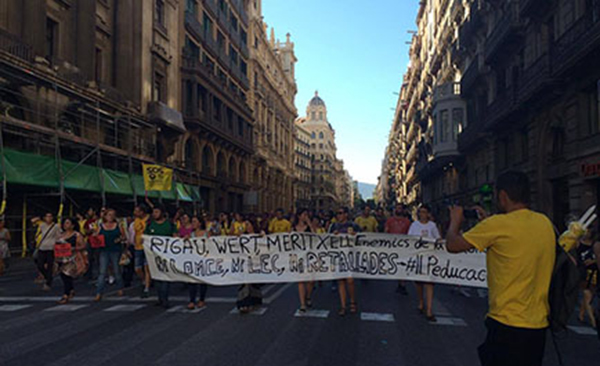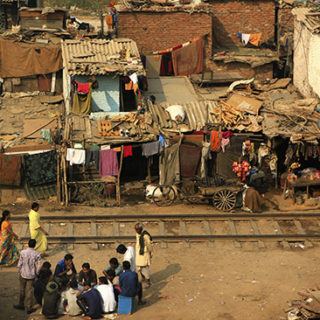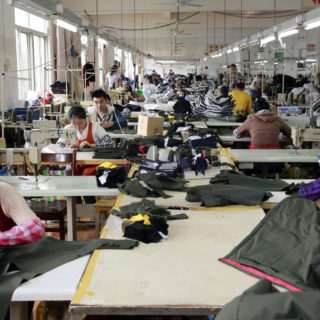Can activist politicians be agents of change?
Can social movements maintain their sustainable ideals when they transition to political power? Mine Islar, Assistant Professor at Lund University Centre for Sustainability Studies, LUCSUS spent all of 2016 conducting a field study on Barcelona en Comú, a platform of several social movements, to find out.
She chose to study Barcelona en Comú, which got elected to power in Barcelona in May 2015, and whose leader, Ada Colau is the first woman to hold the office of mayor in the city, since she says it is a unique illustration of citizen municipalism in practice, serving both as an elected institutional body in the municipality and as a platform of different social and ecological movements. For her field study she interviewed local politicians from Barcelona en Comú, and sat in on political meetings. She explored how, and if, they can keep their activist identity and ideals while doing institutional politics.
“For me, this type of research is very important”, says Mine Islar. “We need to learn about mobilisation at all levels”. Not only those in the streets but also in institutions.
According to her, this is especially important after Trump’s election to power and the right-wing turn in several European countries. She sees an urgent need to connect small strands of environmental movements, civil rights movements and citizen initiatives in order to claim the space in the political arena – since this space will not be granted by the current political structures.
“We need to learn about mobilisation at all levels”
‟If we truly want to create a sustainable future, it is important that we know more about what it takes to bring sustainability into politics. This is why it is interesting and relevant to learn what Barcelona en Comú has achieved and learned in the process.”
Through her field study, Mine Islar identified a number of factors that impact how social movements realise their sustainable policies in local politics.
One observation concerns how social movements make the transition from the streets to formal politics in the first place. According to her, it is very easy for many people to be ecological in their personal life, say by buying organic products, or being part of a food cooperative, but a widespread problem is that they do not want to become involved in politics themselves. Yet, the politicians from Barcelona en Comú made this transition.
‟Barcelona en Comú has had to learn how to negotiate the bureaucracy and that can often be difficult.”
Another challenge for the platform is to manage its governing structure: it is governed by direct democracy whereby all members can be involved in the decision-making processes. Yet, according to Mine Islar, this bottom-up approach can be challenging to maintain in the realm of institutional politics. After all, she says, institutions are governed by bureaucratic rules and they are not always as democratic as social movements wish them to be.
Overall, Mine Islar is of the opinion that, so far, Barcelona en Comú’s transition to power has been an inspiring story from a sustainability perspective.
Since 2015, the platform has managed to implement a number of initiatives aimed at making Barcelona more sustainable – initiatives that are based on what people want. The initiatives develop different forms of partnerships with energy collectives and food cooperatives in the city, where the people can have a say in the development of Barcelona’s policies.
One of the ideas that Barcelona en Comú supports is the mobility plan called superblocks. Transforming car roads into pedestrian public spaces to be used for arts, culture, leisure, and other recreational activities is seen as a way to create political space for democracy in the city.
Mine Islar thinks that the platform’s close ties to the citizens of Barcelona have played an important part in making this happen. Also, politicians and bureaucrats have learnt something from Barcelona en Comú; the learning process has been mutual and beneficial both to the representatives of formal political parties and to the platform.
‟Is this process durable in the long run when it comes to creating a sustainable Barcelona? It is too early to tell, we will have to wait and see. But in the short run, it is inspiring!”
Text: Noomi Egan






